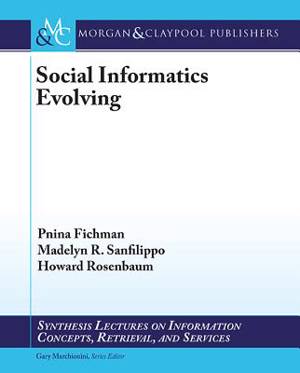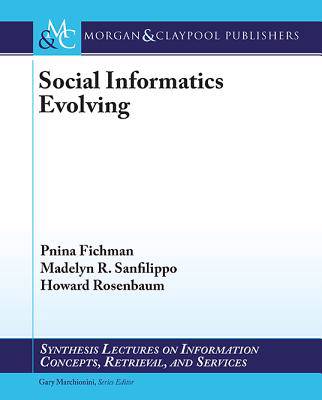
- Afhalen na 1 uur in een winkel met voorraad
- Gratis thuislevering in België vanaf € 30
- Ruim aanbod met 7 miljoen producten
- Afhalen na 1 uur in een winkel met voorraad
- Gratis thuislevering in België vanaf € 30
- Ruim aanbod met 7 miljoen producten
Zoeken
Omschrijving
The study of people, information and communication technologies and the contexts in which these technologies are designed, implemented and used has long interested scholars in a wide range of disciplines, including the social study of computing, science and technology studies, the sociology of technology, and management information systems. As ICT use has spread from organizations into the larger world, these devices have become routine information appliances in our social lives, researchers have begun to ask deeper and more profound questions about how our lives have become bound up with technologies. A common theme running through this research is that the relationships among people, technology and context are dynamic, complex and critically important to understand. This synthesis lecture explores social informatics (SI), one important and dynamic approach that researchers have used to study these complex relationships. SI is "the interdisciplinary study of the design, uses and consequences of information technology that takes into account their interaction with institutional and cultural contexts" (Kling 1998, p.52; 1999). SI provides flexible frameworks to explore complex and dynamic sociotechnical interactions. As a domain of study related largely by common vocabulary and conclusions, SI critically examines common conceptions of and expectations for technology, by providing contextual evidence. This synthesis describes the evolution of SI research and identifies challenges and opportunities for future research. In what might be seen as an example of sociotechnical "natural selection", SI emerged in six different locations during the 1980s and 1990s: Norway, Slovenia, Japan, the former Soviet Union, the UK and, last, the US. As SI evolved, the version popularized in the US became globally dominant. The evolution of SI is presented in five stages: emergence, foundational, expansion, coherence, and transformation. Thus, we divide SI research into five major periods: an emergence stage, when various forms of SI emerged around the globe, an early period of foundational work which grounds SI (Pre-1990s), a period of expansion (1990s), a robust period of coherence and influence by Rob Kling (2000-2005), and a period of transformation (2006-Present). Following the description of the five periods we discuss the evolution throughout the periods under five sections: principles, concepts, approaches, topics, and findings. Principles refer to the overarching motivations and labels employed to describe scholarly work. Approaches describe the theories, frameworks, and models employed in analysis, emphasizing the multi-disciplinary and interdisciplinary nature of SI. Concepts include specific processes, entities, themes, and elements of discourse within a given context, revealing a shared SI language surrounding change, complexity, consequences, and social elements of technology. Topics label the issues and general domains studied within social informatics, ranging from scholarly communication to online communities to information systems. Findings from seminal SI works illustrate growing insights over time and demonstrate how repeatable explanations unify SI. In the concluding remarks, we raise questions about the possible futures of SI research.
Specificaties
Betrokkenen
- Auteur(s):
- Uitgeverij:
Inhoud
- Aantal bladzijden:
- 106
- Taal:
- Engels
- Reeks:
Eigenschappen
- Productcode (EAN):
- 9781627054362
- Verschijningsdatum:
- 1/10/2015
- Uitvoering:
- Paperback
- Formaat:
- Trade paperback (VS)
- Afmetingen:
- 190 mm x 235 mm
- Gewicht:
- 204 g

Alleen bij Standaard Boekhandel
+ 108 punten op je klantenkaart van Standaard Boekhandel
Beoordelingen
We publiceren alleen reviews die voldoen aan de voorwaarden voor reviews. Bekijk onze voorwaarden voor reviews.








